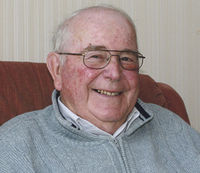Msgr John Broadbent’s account of the opening of Vatican II on October 11, 1962, continues with Pope John’s invitation to non-Catholic observers to sit with him in the sanctuary of St Peter’s Basilica.
 Pope John began his famous discourse which needs to be read in its entirety, but even this was interrupted when he called to the non-Catholic observers to come and sit near him on the very edge of the sanctuary. It was a deliberate act of inclusion because, in all preceding general councils, those not part of the church had been excluded.
Pope John began his famous discourse which needs to be read in its entirety, but even this was interrupted when he called to the non-Catholic observers to come and sit near him on the very edge of the sanctuary. It was a deliberate act of inclusion because, in all preceding general councils, those not part of the church had been excluded.
The pope outlined the church’s new orientation, that would ‘look to the future without fear’.
Optimism was the keynote. ‘In the daily exercise of our pastoral office,’ said John, ‘We sometimes have to listen, much to our regret, to voices of persons who, though burning with zeal, are not endowed with much sense of discretion or measure.
‘In these modern times, they can see nothing but prevarication and ruin. They say that our era, in comparison with past eras, is getting worse. And they behave as though they had learned nothing from history, which is nonetheless the teacher of life and, as if at the times of other councils, everything was a full triumph for the Christian idea and for proper religious liberty. We feel that we must disagree with those prophets of gloom, who are always forecasting disaster as though the end of the world were at hand.’
John went on to say, ‘Everything, even human differences, leads to the greater good of the Church.’
He reminded listeners that even a cursory glance through the pages of church history showed how princes and potentates often interfered with those ancient councils ‘not without spiritual damage and danger since their interest in this was guided by the views of a selfish and perilous policy.’
The purpose of the council was not a discussion of one article or another of the fundamental doctrine of the church, he said.
‘For this a Council was not necessary. But … the Christian, Catholic and Apostolic spirit of the whole world expects a step forward towards a deeper penetration and a developing realisation of the faith in perfect conformity to the authentic doctrine which should be studied and expounded through modern research and modern scholarly disciplines.’
John had already said that ‘the church should never depart from the sacred patrimony of truth received from the Fathers … our duty is not only to guard this precious treasure (as if we were concerned only with antiquity) but to dedicate ourselves with any earnest will and without fear to that work which our era demands of us.’
Then John put the council’s duty and endeavours in perspective.
‘The substance of the ancient doctrine of the deposit of faith is one thing. The way in which it is presented is another.’
He also showed a shift in the church’s policy. ‘Often errors vanish as quickly as they arise, like fog before the sun. The church has always opposed these errors. Frequently she has condemned them with the greatest severity.
‘Nowadays, however, the spouse of Christ is to make use of the medicine of mercy rather than that of severity. She considers that she meets the needs of the present day by demonstrating the validity of her teaching rather than by condemnations.’
John finished by saying violence and force ‘are of no help at all in finding a happy solution to the grave problems which afflict us.’ It is only by Christians working in society that peace will come about in the words of St Peter to the poor man begging for help, ‘Silver and gold I have none; but what I have I give thee: in the name of Jesus of Nazareth, arise and walk.’
He then spoke of the prayer and unity of all Christians as Christ had prayed at the Last Supper, ‘to have men (sic) welcome more favourably the good tidings of salvation (which in turn) prepares and consolidates the path towards the unity of mankind.’
John XXIII took up the same theme that night in the torchlight procession in St Peter’s Square when he shared with some 500,000 people his excitement and gratitude to God for the opening of the council.
Some ‘prophets of doom’ had been telling him this turning of the church outwards could disturb the simple faith of the masses. But he saw they had seen in him the Pope God had given them.
‘Dear children,’ he said, ‘I hear your voices. My voice is an isolated one, but it echoes the voice of the whole world. Here, in effect, the whole world is represented.’
He ended by saying that they were united not by the mere formulations of philosophers and jurists, but by Christ himself. ‘The glow and the sweetness of the Lord take hold of us and unite us.’
As one commentator put it, ‘Christ, clearly, was the source of John’s optimism, this love was enough.’
For parts one and two of this series on Vatican II, see http://www.welcom.org.nz/?sid=1242
and http:// www.welcom.org.nz/?sid=1253